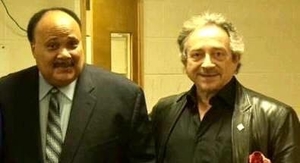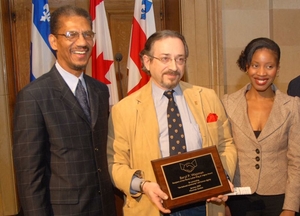Today, The Rev. Dr. Martin Luther King, Jr. would have turned 90 years old. Tragically, he was struck down by an assassin's bullet at the age of 39 on April 4 1968. He had frequently told his wife that he felt he would never reach his fortieth birthday.
The commemoration of King's life and legacy reminds us of a time when leaders of conscience and character marched to a different drumbeat. They taught us how to fight against the tyranny of hypocrisy and mendacity. Their example gave many of us the courage to pledge undying vigilance against the viruses of interposition and nullification.
Sadly, many of us came to political maturity knowing that some of the best people we would ever see had already had their heads blown off in the terrible times between 1963 and 1968.Their names echo across the years to us still.
Evers, Kennedy, King, Kennedy. Those killings led to generational malaises of political mindlessness and mediocrity that to a great extent we have not come out of.
But through our memory and witness we keep the flame of hope alive. A hope that helps us keep our eyes on the prize. The prize of a society where, in King's words, "people will be judged by the content of their character not the color of their skin or the contents of their pocketbooks"
As much as his leadership in the civil rights struggle, perhaps King’s greatest moment was his organization of the largest public manifestation for the dignity of man that Washington had ever seen. The March on Washington for Jobs and Freedom saw 250,000 people descend on the Mall in front of the Lincoln Memorial. Black and white, men and women, old and young, all faiths and all creeds.
On that glorious August day in 1963 we heard Dr. King deliver what is arguably the greatest piece of oratory in the English language. "I have a dream!" he thundered. And we all dreamt the same dream. No one - even if they were a child - who saw it or heard it was left unmoved or unchanged. The words and the spirit swept us up on gossamer wings.
But on that day, it was not just a dream. Hope lived that day. We knew it could be a reality. We knew there were leaders of courage and conviction who could make it so. Leaders who understood the fierce urgency that “Justice shall roll down like waters and righteousness as a mighty stream.” Leaders who were not interested in balancing interests, but in challenging them.
Earlier that year, Medgar Evers had been murdered in front of his wife and children by a racist who shot him in the back. But there was still JFK and Bobby and above all Martin. Within 57 months they were all slaughtered. But on that day, everything seemed possible.
Looking back over the past half-century it is almost as if the dream of that day - a dream of unlimited expansion of individual purpose and possibility - had been replaced with an era of prohibition, prejudice and pettiness. As if after the assassinations, leaders were too scared to lead.
But in our memory and witness on this day we keep the flame of hope alive. Alive, so history will not write that most pathetic of epitaphs over our era, “Too late.”
But to keep that flame alive we all have a responsibility of memory, witness and action. Read the words again. Look at the films again. Show them to your children. Give them the example to lead. Remind them of Brother Martin. Let them see that once there was a time when we would not let courage be compromised by timidity, nor Justice cheapened for expediency, nor honor mortgaged to avarice.
The possibilities of our capacities for greatness and generosity are constantly compromised by an ungracious modernity and a suffocating self-absorption filled with false pieties as excuses for inaction. But it does not have to be this way.
Several years ago, Rev. Joseph C. Lowery, a co-founder of the Southern Christian Leadership Conference with Rev. King, said, "Today we commemorate. Tomorrow we agitate!" That is the dream that must be kept alive. And by our deeds, the glorious hope of his brilliant shining life and that brilliant summer day shall never die.

with the Rev.Martin Luther King,III

Receiving a Martin Luther King, Jr. Award from the Rev. Darryl G. Gray



























Commentaires
Veuillez vous connecter pour poster des commentaires.